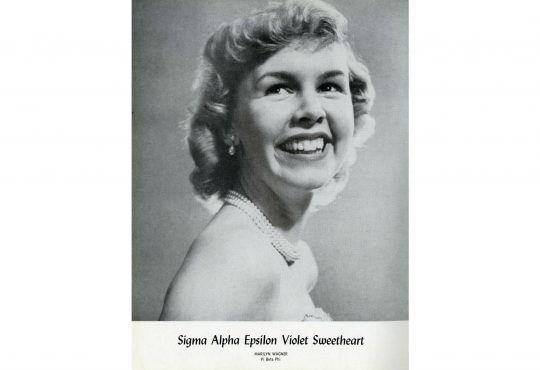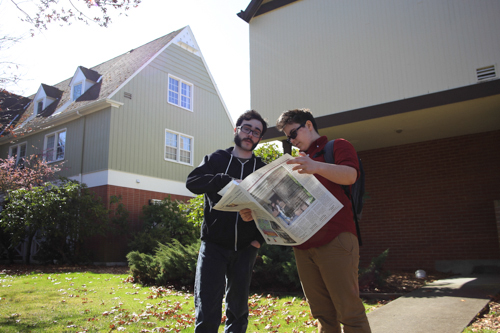To the editor,
On February 28, The Trail ran an article by Becca Duncan responding to an article I had written in Wetlands Magazine where I argued that Greek Life is inherently heteronormative, exclusionary, elitist, secretive and that many queers on this campus feel unsafe around members of Greek Life.
There have been a number of responses by members of Greek Life now and in multiple forums. I am not persuaded by any of them. In fact, most of the responses convince me of the need for more critique of Greek Life on this campus. Why would I think that? Almost all of the responses I have seen in writing or heard in person rely on one argument: things are different here.
Are they really so different here, though? Why do we think our campus would be special? Doesn’t literally every student Greek organization think this about itself?
The Feb. 28th article is a parody of itself: “[Greek] houses at the University [of Puget Sound] do not discriminate. Sexual orientation and gender identity play no role in the rush process.”
This is not what good faith dialogue sounds like. This is not what it means to listen to criticism and respond meaningfully. This is what denial sounds like. When queer people are telling you that they feel excluded or unwelcome in a space and they feel that their queerness is in part the reason for that exclusion then sexual orientation and gender identity are by definition playing a role in the rush process whether you want to believe it or not. The Trail’s February 28th article expresses an unlimited faith in the redemptive power of Greek Life to fix what is wrong with Greek Life; in fact, reading the article, I was left with the awkward feeling that I was being used as part of some Greek Life public service announcement. I think this is awkward because no part of the Trail article responded or made an effort to respond to the substance of my critique, which is that Greek Life is heterosexist and that heterosexism is foundational to Greek Life.
What does this mean? This means that Greek Life and its members are embrocated within a larger structure of gender and sexuality that systematically privileges and protects straight or straight-acting people and excludes, whether consciously or not, many queer and other gender non-conforming people. If you want to have community dialogue and actually listen to some queers for once then that means responding to our criticisms instead of putting a rainbow lapel pin next to your Greek letters and pretending that suddenly now we’re girlfriends. We’re not. There’s not any reason we should play cute here. Some of us queers are people that you people in Greek life have made feel unwelcome and until that condition of feeling unwelcome changes, we won’t be having a good faith dialogue.
Sincerely,
C.J. Queirolo




